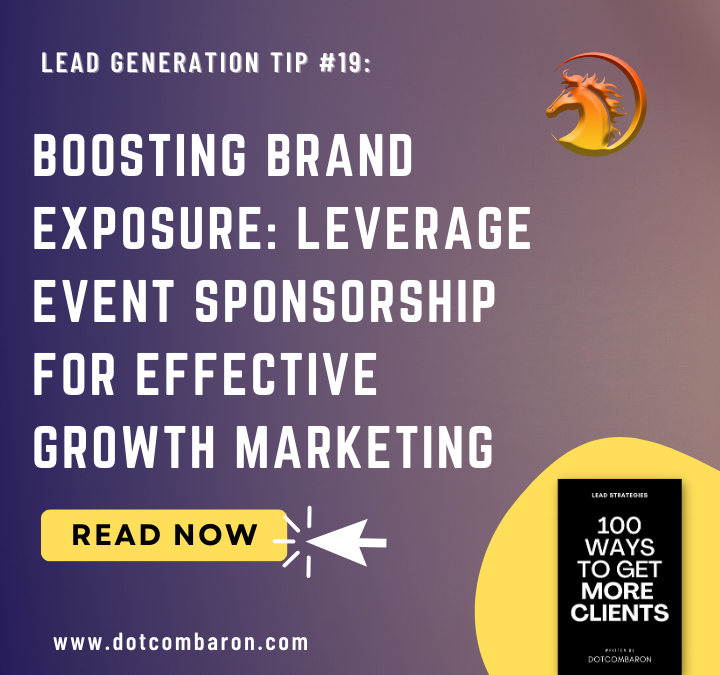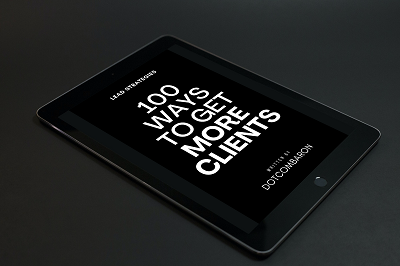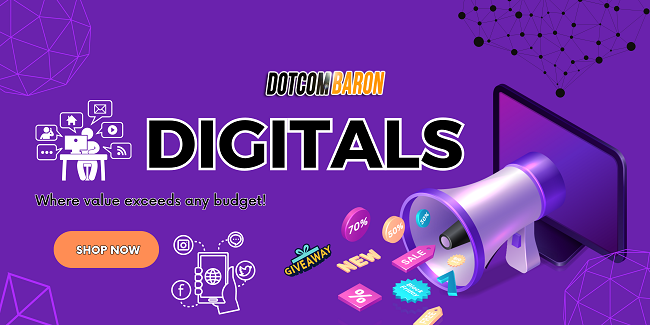With 79% of marketers recognizing event sponsorship as a vital growth strategy, it’s time to delve deeper.
This article guides businesses on leveraging event sponsorship for enhanced brand exposure. From choosing the right events to developing impactful strategies and measuring ROI, we unfold the potential of event sponsorship in growth marketing.
As we explore creative activations and networking opportunities, we provide a comprehensive roadmap to maximize your brand’s visibility and foster meaningful connections.
What’s The Fuzz About?
- Event sponsorship is a powerful tool for growth marketing that requires a significant investment of money and resources.
- When selecting events to sponsor, it is important to consider the target audience, align the event with your brand, and take into account factors such as location, event size, and budget.
- To build a successful event sponsorship strategy, clearly define goals and objectives, determine the budget and type of activations, and plan how to evaluate the success of the sponsorship.
- Maximizing exposure and brand awareness through event sponsorship can be achieved by utilizing social media platforms, getting creative with activations, collaborating with other sponsors, partnering with influencers, and following up with attendees after the event.
Understanding Event Sponsorship Fundamentals
Understanding the fundamentals of event sponsorship is the first step in leveraging this powerful growth marketing tool effectively. A well-planned sponsorship can yield significant benefits that extend beyond mere brand visibility. These advantages include enhanced credibility, access to the target audience, and opportunities for business networking. However, to reap these sponsorship benefits, it is crucial to execute a strategic approach that includes a thorough evaluation of investment considerations.
The investment in event sponsorship is not just financial; it also involves time, resources, and manpower. Therefore, it is crucial to ensure that the event aligns with your brand’s values, mission, and, most importantly, your target audience. This alignment is key to maximizing the return on investment, as it enables your brand to engage directly with potential customers in a setting that resonates with them.
The event size and location also merit careful consideration. Large-scale events may offer broader exposure, but they also entail a greater investment. Smaller, localized events may provide a more focused audience and less competition. Therefore, it is crucial to balance the potential reach with the investment required.
Lastly, understanding the types of event sponsorships available can further refine your strategy. These can range from title sponsorships, which provide maximum exposure, to product or in-kind sponsorships, which involve supplying goods or services for the event. By strategically selecting the appropriate type of sponsorship, you can effectively amplify your brand, capture your audience’s attention, and ultimately drive growth.
Selecting Ideal Events for Sponsorship
How do you identify and select the optimal events for your brand’s sponsorship endeavors? The key to effective event selection lies in strategic analysis and careful consideration of various elements.
Firstly, conduct a target audience analysis. Identify who your potential customers are and find events that cater to the same demographics. Your brand’s presence at these events will resonate more profoundly with attendees, enhancing the possibility of conversions.
Secondly, undertake an event suitability assessment. Your brand should align with the event’s theme and purpose. For instance, a tech company would gain more traction sponsoring a tech conference rather than a music festival. This ensures your brand’s relevance, thereby increasing visibility and impact.
Location based opportunities are another crucial factor. Consider events in locations with a high concentration of your target audience. Geographic proximity to your operations might also reduce logistics costs, providing cost-effective marketing solutions.
Budget considerations are paramount. Evaluate sponsorship costs against projected returns. Smaller brands may find it beneficial to sponsor local events, while larger brands may find value in high-profile international events.
Lastly, perform an event size evaluation. Larger events might offer wider exposure, but smaller, niche events might provide a more targeted reach.
Developing a Successful Sponsorship Strategy
Developing a successful event sponsorship strategy requires clear planning, precise execution, and diligent evaluation. Critical to this process is defining objectives. These should be specific, measurable, achievable, relevant, and time-bound (SMART) to offer a clear direction for the strategy. Objectives could range from increasing brand awareness, generating leads, or strengthening customer loyalty.
Allocating resources is the next pivotal step. This involves not just the financial investment but also the time and manpower that will be dedicated to the event. A well-planned budget ensures that all aspects of the event sponsorship, from booth setup to post-event follow-ups, are adequately covered without unnecessary overspending.
Assessing the target audience allows for tailoring event activities and messages that resonate with them. Knowledge about their preferences, behaviors, and needs will guide the creation of impactful experiences that align with your brand’s values and offerings.
Evaluating brand alignment is crucial to ensure that the event aligns with your brand’s image, values, and goals. Sponsorship of an event that contradicts your brand’s identity can lead to a confusing message and a dilution of your brand’s value proposition.
Lastly, measuring success is integral to the strategy. Define key performance indicators (KPIs) in line with your objectives, such as the number of leads generated, social media mentions, or attendee feedback.
A successful event sponsorship strategy is a liberation from traditional advertising, providing a more immersive and meaningful brand experience. With this foundation, we can now transition into how to maximize exposure through event sponsorship.
Maximizing Exposure Through Event Sponsorship
While event sponsorship is a significant investment, it can be effectively leveraged to maximize brand exposure, provided a thoughtful and strategic approach is employed. Four key strategies can aid in this pursuit of amplified brand visibility and enriched audience engagement.
- Social Media Promotion: In this digitally connected era, social media serves as a crucial platform for brand storytelling. Utilize these platforms to promote your event sponsorship, generate anticipation, and engage with attendees before, during, and after the event. It’s a cost-effective way to extend your reach, interact with your audience, and enhance your brand’s digital footprint.
- Creative Activations: Differentiate your brand from the crowd with creative activations that resonate with your target audience and align with your brand’s ethos. From interactive displays to immersive experiences, these activations can create memorable impressions and foster deeper connections with your audience.
- Collaborative Sponsorships: Partnering with other sponsors can amplify your presence at the event. These collaborative sponsorships can generate synergetic benefits, combining resources, sharing audiences, and enhancing the overall value of the sponsorship.
- Influencer Partnerships: Influencers can serve as powerful allies to increase brand exposure. Aligning with influencers who resonate with your target audience can drive engagement, credibility, and reach.
- Post Event Follow Up: The relationship with the audience doesn’t end when the event does. Engage in post-event follow up to keep the conversation going, nurture relationships, and convert interest into action.
As we transition into the subsequent section, we will further delve into how event sponsorships can serve as a platform for networking and relationship building.
Networking and Relationship Building at Events
Beyond maximizing brand exposure, event sponsorship also serves as an invaluable platform for fostering key industry relationships and expanding professional networks. This form of strategic marketing not only helps to amplify your brand reach but also provides unparalleled networking opportunities. These gatherings serve as fertile grounds for building connections, both with potential customers and industry insiders, thereby playing a pivotal role in accelerating business growth.
Event sponsorship provides a unique setting for relationship building. It allows you to interact with your target audience and peers on a personal and professional level. Engaging in meaningful conversations and showcasing your brand’s values and offerings can significantly contribute to establishing credibility.
Furthermore, these events are a goldmine for developing industry connections. The chance to interact with influencers, thought leaders, and professionals from various fields can open doors to collaboration opportunities and potential partnerships. These connections can lead to a wider audience reach, fresh perspectives, and shared resources, thereby fueling your brand’s growth.
However, it’s essential to approach these networking opportunities strategically. It’s not about the number of business cards you collect, but the quality of relationships you forge. Prioritize meaningful interactions that reflect your brand’s ethos and align with the audience’s needs and interests. Your genuine interest and active engagement can go a long way in establishing lasting relationships and a strong brand reputation.
Frequently Asked Questions:
What Are Some Common Mistakes to Avoid When Sponsoring an Event for Growth Marketing?”
Common mistakes to avoid in event sponsorship include: suboptimal sponsor selection, budget mismanagement, ineffective branding, ignoring audience preferences, and non-strategic partnerships. These errors can severely undermine growth marketing efforts and brand exposure.
How Can a Small Business Effectively Approach Event Sponsorship With a Limited Budget?”
Small businesses can effectively approach event sponsorship by strategic sponsorship selection, careful budget allocation, assertive partnership negotiation, visibility maximization during the event, and thorough post-event analysis to assess the effectiveness and return on investment.
What Are Some Unique and Innovative Activation Ideas for Event Sponsorship?”
Innovative event sponsorship activations could include interactive exhibits, engaging attendees in a multi-sensory brand experience. Virtual reality, social media contests, influencer partnerships, and branded freebies are also unique ways to create memorable, impactful connections with your audience.
Can Event Sponsorship Be Effective for Online Businesses and How?”
Yes, event sponsorship can be effective for online businesses. Through careful sponsorship selection, businesses can enhance online visibility, engage audiences, align with relevant brands, and leverage sponsorship metrics to assess impact and strategize future growth initiatives.
How Can Event Sponsorship Complement Other Marketing Strategies?”
Event sponsorship enhances marketing strategies by providing targeted exposure and audience engagement. The benefits of sponsorship include brand alignment with relevant events, while sponsorship evaluation ensures strategic integration and effective use of resources for maximum impact.
Conclusion:
In conclusion, the strategic deployment of event sponsorship can serve as a potent catalyst in a company’s growth marketing efforts.
Like a masterful conductor leading an orchestra, a well-crafted sponsorship strategy can harmonize brand exposure, networking, and relationship building to create a symphony of business success.
With the right events, effective strategies, and the application of modern technology, businesses can maximize their return on investment and propel their brand into the spotlight of public attention.








